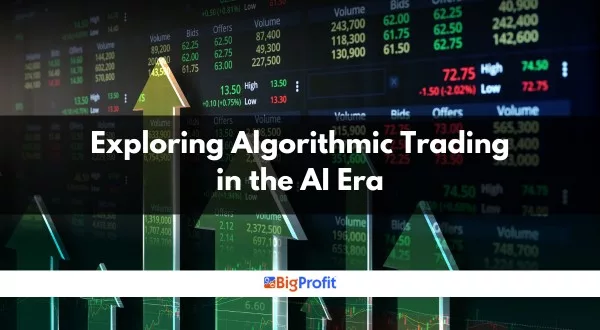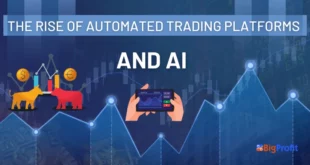Algorithmic trading is a form of financial market automation which automates transaction decisions on behalf of people using complex mathematical models that make transaction selections for them. These models can identify trends as well as predict consumer and market behavior based on past responses and reactions.
Machine learning algorithms are excellent at solving optimization problems, such as optimal trade execution. Reinforcement learning in particular has shown tremendous promise here.
How AI is changing the way we trade
Artificial Intelligence (AI) is revolutionizing how traders and investors interact with the stock market. AI offers numerous benefits, including improved accuracy, efficiency, reduced emotional bias and better risk management – plus helping investors build well-diversified portfolios to achieve long-term financial goals.
AI trading strategies execute trades at speeds far exceeding human trading, providing greater accuracy and precision than humans could match. Unfortunately, however, their use remains constrained by quality data availability as well as market dynamics complexity.
AI trading requires regular self-checks as the algorithms must be monitored closely to ensure they are operating effectively in financial markets where even minor miscalculations could have serious ramifications. Numerous techniques exist that can enhance AI-powered trading systems’ performance such as Monte Carlo simulation, model selection and data augmentation.
AI’s impact on financial markets
AI may be becoming increasingly significant, yet its application in financial markets remains complex and confusing. Integrating it into trading strategies may have both positive and negative implications on market efficiency and volatility; as this technology increases speed and accuracy of trading decisions while improving data used in decision making processes.
AI can also reduce fraud risk by identifying patterns and anomalies, helping companies meet regulatory compliance requirements by automating processes, reducing manual workloads and speeding reporting times.
AI trading systems may either use rule-based or machine learning algorithms. When employing machine learning algorithms, users will need to monitor and adjust performance as required, ensure safeguards are in place against malfunction and financial market damage, as well as have a system in place that detects and stops an algorithm once its risk levels have reached preset thresholds.
AI’s impact on trading
AI technology has quickly made an entrance into financial markets, offering traders numerous advantages when it comes to trading strategies. AI offers traders several benefits such as improved accuracy, efficiency, reduced costs and its use can predict patterns while alleviating emotional biases.
AI can play an invaluable role in trading by helping traders identify market inefficiencies. By analyzing large amounts of data, AI algorithms can detect trends and make predictions about future market movements to enable more profitable trades for traders.
Other effects of AI on trading include its dependence on technology and internet connectivity, which could be interrupted by technical problems or cyberattacks. AI trading systems tend to be complex and opaque, making it hard for traders to assess performance or risk accurately; this raises ethical and regulatory considerations; however, as its use grows more widespread regulators are creating policies and guidelines specifically for its implementation.
AI’s impact on the financial industry
AI revolution has had an extraordinary effect on the financial industry, from front to back office functions, reshaping markets, improving risk management and compliance processes, as well as providing central banks with new tools to pursue their monetary and macroprudential mandates.
Capital One, for instance, is using machine learning to better predict customer needs and improve loan underwriting, as well as reduce fraud through analysis of customer transactions that reveals patterns which could suggest fraudulent activity.
AI use in financial services is rapidly expanding. But it’s important to remember that AI technologies do not replace human employees; rather, they augment them. Furthermore, widespread adoption of AI within financial industry may carry risks like embedded bias, overreliance on alternative data and herding behavior that should be managed through policy responses.
 BigProfit Profit through Algo & Technical Trading
BigProfit Profit through Algo & Technical Trading




